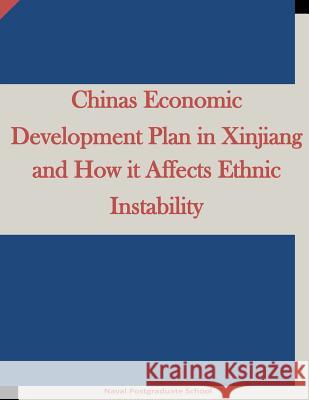Chinas Economic Development Plan in Xinjiang and How it Affects Ethnic Instability » książka
Chinas Economic Development Plan in Xinjiang and How it Affects Ethnic Instability
ISBN-13: 9781523200528 / Angielski / Miękka / 2016 / 56 str.
To decrease ethnic instability in Xinjiang, the Chinese government's plan is to economically develop the region. Xinjiang is rich in natural resources, is geographically significant and has a special economic zone. China is also investing in Central Asia to further meet its energy demand. A network of pipelines and major rail systems connect sources from China to Central Asia and beyond. Xinjiang's economy will benefit from the network because it is the gateway and corridor to Central Asia and a hub for the Silk Road traffic. This book suggests that Xinjiang's economic development led to a few destabilizing elements, including Han migration, income disparity and employment discrimination. All of this is taking place while the government is also dealing with other cultural issues, such as religion and education. The author hypothesizes that China's economic development plan in the Xinjiang Uyghur (or Uighur) Autonomous Region increases, decreases or is a subsidiary factor to ethnic instability. This book argues that China's economic development plan for Xinjiang affects ethnic stability in Xinjiang as a subsidiary factor.
Zawartość książki może nie spełniać oczekiwań – reklamacje nie obejmują treści, która mogła nie być redakcyjnie ani merytorycznie opracowana.











